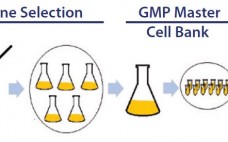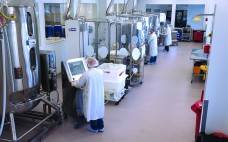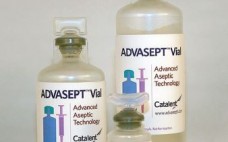Both small and large biopharmaceutical companies are increasingly pursuing the outsourcing of manufacturing and testing throughout the product lifecycle. The growing use of contract manufacturing organizations (CMOs) and contract testing organizations (CTOs) has led to increasing complexity within the biopharmaceutical industry as more third-party sites are leveraged to support global markets. To address those issues, a CASSS Chemistry, Manufacturing, and Controls (CMC) Strategy Forum was held in Washington, DC, 27–28 July 2014. The title was “Effective Management of Contract Organizations: Sponsors, Contract Organizations, Health Authorities and Patients — Keeping the Product Pipeline Moving, Compliant, and Available.” The CMC Strategy Forum is…
Manufacturing Contract Services
Cost-Effective Process Development for Plasmid DNA Manufacture: Evaluation of Single-Use Technologies to Support Escherichia coli Culture
DNA-based gene therapy products have been in clinical development since the 1990s. But over the past 24 months, the overall demand and therapeutic applications for plasmid DNA (pDNA) have rapidly grown and expanded. Currently, pDNA can be used directly as a therapeutic agent (e.g., in gene therapy or generation of vaccine antigens) and indirectly for a range of applications. Those include its use as a critical starting material for transient transfection to produce both viral-vector constructs (e.g., lentivirus or adenoassociated…
Clinical/Commercial Manufacturing: BPI Theater @ BIO 2015
Tony Hitchcock (technical director, Cobra Biologics) 1:30–1:55 pm The Expanding DNA and Gene Therapy Market The gene therapy market has fluctuated dramatically over the past 20 years. But Hitchcock noted that over the past three years there has been a huge emergence of successful clinical outputs of gene therapy, with a large number of IPOs and significant funding. Even more interesting is the number of large pharmaceutical companies bringing gene therapy into their portfolios. Hitchcock pointed out that it is…
Managing Contract Relationships: A BPI Theater Roundtable at the 2015 BIO Convention
On Wednesday 17 June 2015, Patricia Seymour (senior consultant at BioProcess Technology Consultants) chaired a midday roundtable titled, “Managing the Contract Relationship.” She brought together a panel of four experts with different perspectives (contract manufacturing, cell and protein therapies, and legal negotiations): Koen Hellendoorn (head of sales and customer account management at FujiFilm DioSynth Biotechnologies) Justin Skoble (senior director of technical operations for Aduro Biotech) Tom Douville (director of biopharmaceutical development at Kolltan Pharmaceuticals) Lily Vakili (senior counsel of Faber,…
Speeding Development and Lowering Costs While Enhancing Quality: A BPI Theater Roundtable at the 2015 BIO Convention
On Tuesday, 16 June 2015, Thomas C. Ransohoff (vice president of BioProcess Technology Consultants) chaired a midday roundtable titled, “Stretching for the Trifecta: Innovative Strategies for Speeding Development, Lowering Costs, and Enhancing Quality.” He brought together a panel of four industry experts: Joanne Beck (senior vice president of process development at Shire Pharmaceuticals) Parrish Galliher (chief technology officer for upstream (Xcellerex) at GE Healthcare) Lynne Frick (director of continuous processing for the Americas at Pall Corporation) Mark Brower (senior research…
The Contractor Perspective: A BPI Theater Roundtable at the 2015 BIO Convention
On Thursday, 18 June 2015, Gil Roth (founder and president of the Pharma & Biopharma Outsourcing Association, PBOA) chaired a midday roundtable titled, “CDMO Challenges and Opportunities.” He brought together a panel of four industry experts: Thomas Thorpe (chief executive officer of Afton Scientific) Michael Riley (vice president and general manager of Catalent Biologics) Victor Vinci (vice president and chief scientific officer for Cook Pharmica) Amit Arora (chief marketing officer at Jubilant HollisterStier) Points of View The Pharma and Biopharma…
Compatibility Assessment of a Model Monoclonal Antibody Formulation in Glass and Blow–Fill–Seal Plastic Vials
PREPRINT October 2015 issue Blow–fill–seal (BFS) technology has been recognized by the industry as an advanced aseptic solution (1–3). Catalent Pharma Solutions has been commercially supplying sterile BFS products to the pharmaceutical industry for decades, primarily in the respiratory and topical ophthalmic markets. Such product formulations range from simple solutions to emulsions with drug substances from classical small molecules to large complex proteins such as biologics. The company also has optimized BFS processes and its Advasept plastic container system for…
Are You Ready for a Tech Transfer? Part 1: Challenges and Critical Factors for Success in Cell Therapy Development
Cell therapies offer enormous promise for treatment of a range of conditions by replacing damaged tissue or leveraging the body’s own resources to heal itself. Not surprisingly, the cell therapy industry is growing rapidly and is poised to have a major impact on healthcare and disease treatment. The Alliance for Regenerative Medicine (ARM) has reported on the robust state of the industry, noting that revenue from cell-derived products grew from US$460 million in 2010 to $1.3 billion in 2013 (1).…
Outsourced Data Integrity: Are Short-Term Financial Gains Worth Long-Term Headaches?
Competitive pricing and continued cost pressures have contributed to the need for many US biopharmaceutical companies to outsource manufacture of active pharmaceutical ingredients (API) and finished products from countries with lower costs for labor, material, and equipment. The main benefit of doing so is lower costs of manufacturing with quality standards comparable to those found in the United States. India and China now account for 80% of API production. But those countries have received media attention because of biopharmaceutical manufacturing…
When Is a Virtual Business Model Suitable for Biopharmaceutical Companies?
Virtual companies are based on the model that all activities are outsourced. Such companies have no (or few) employees, occupy no laboratory space, and use contract service organizations for all activities. Over the past decade, several virtual biopharmaceutical companies have formed (1–4). They are primarily start-up ventures that use contract research organizations (CROs) for R&D and contract manufacturing organizations (CMOs) for product manufacturing. By contrast, a fully integrated biopharmaceutical company is based on the model that all activities are internal to…









